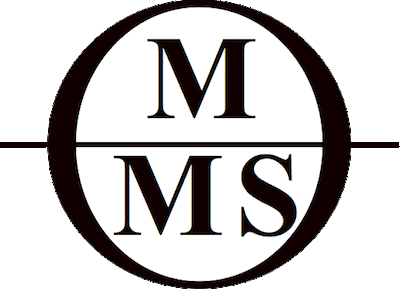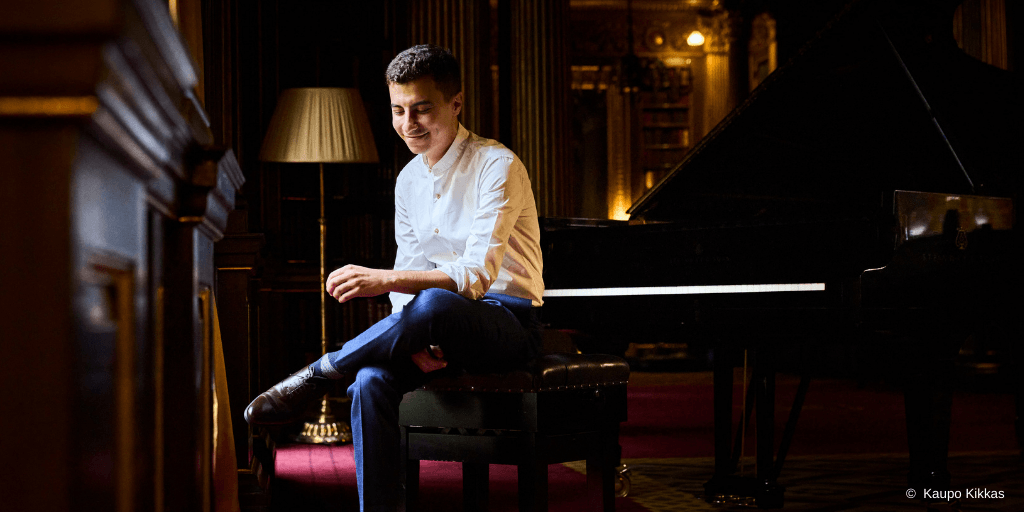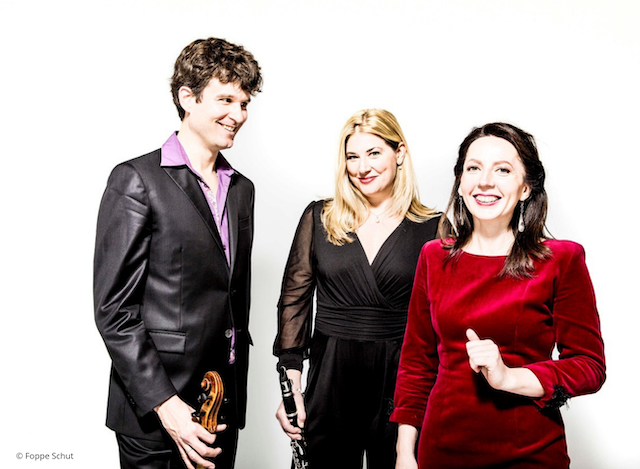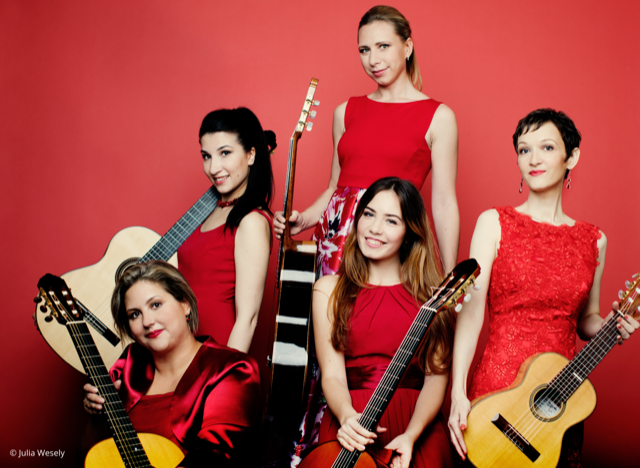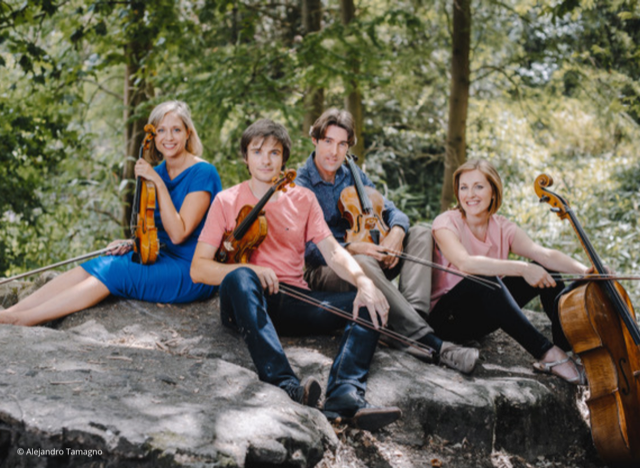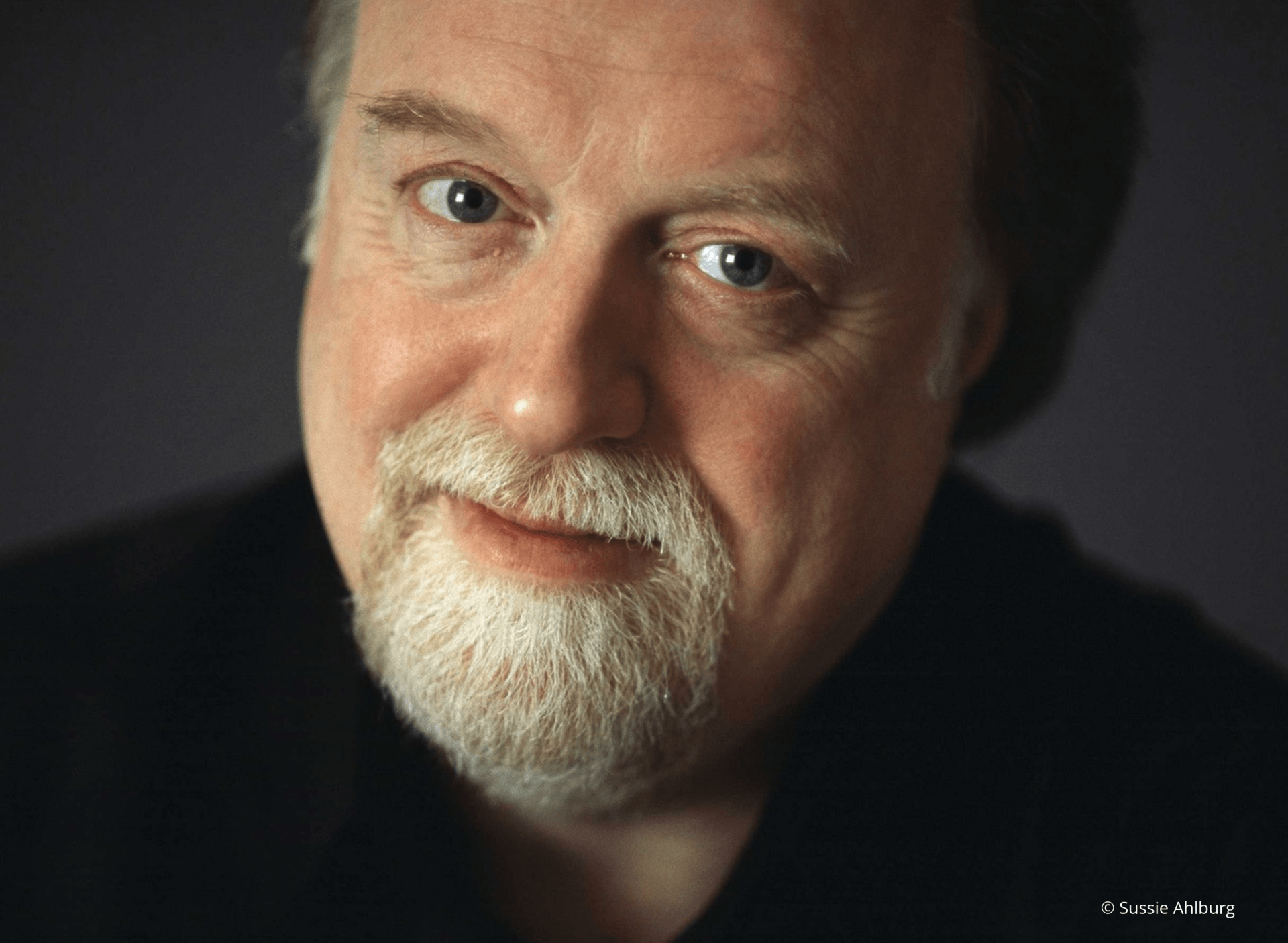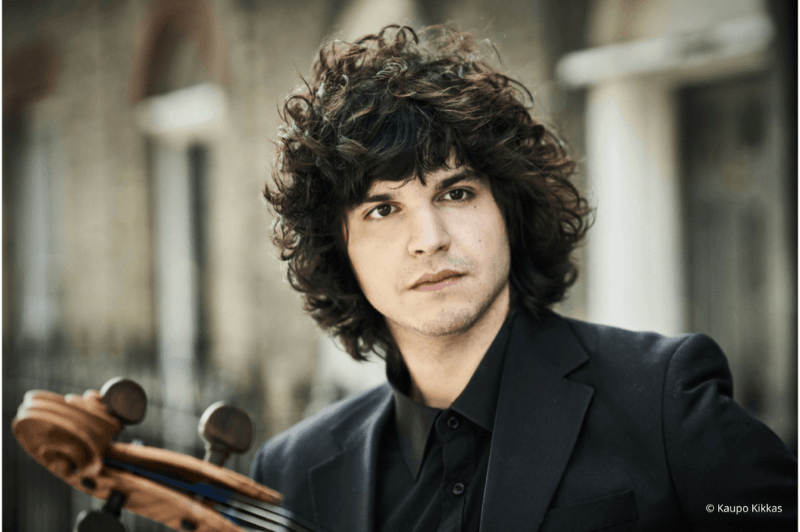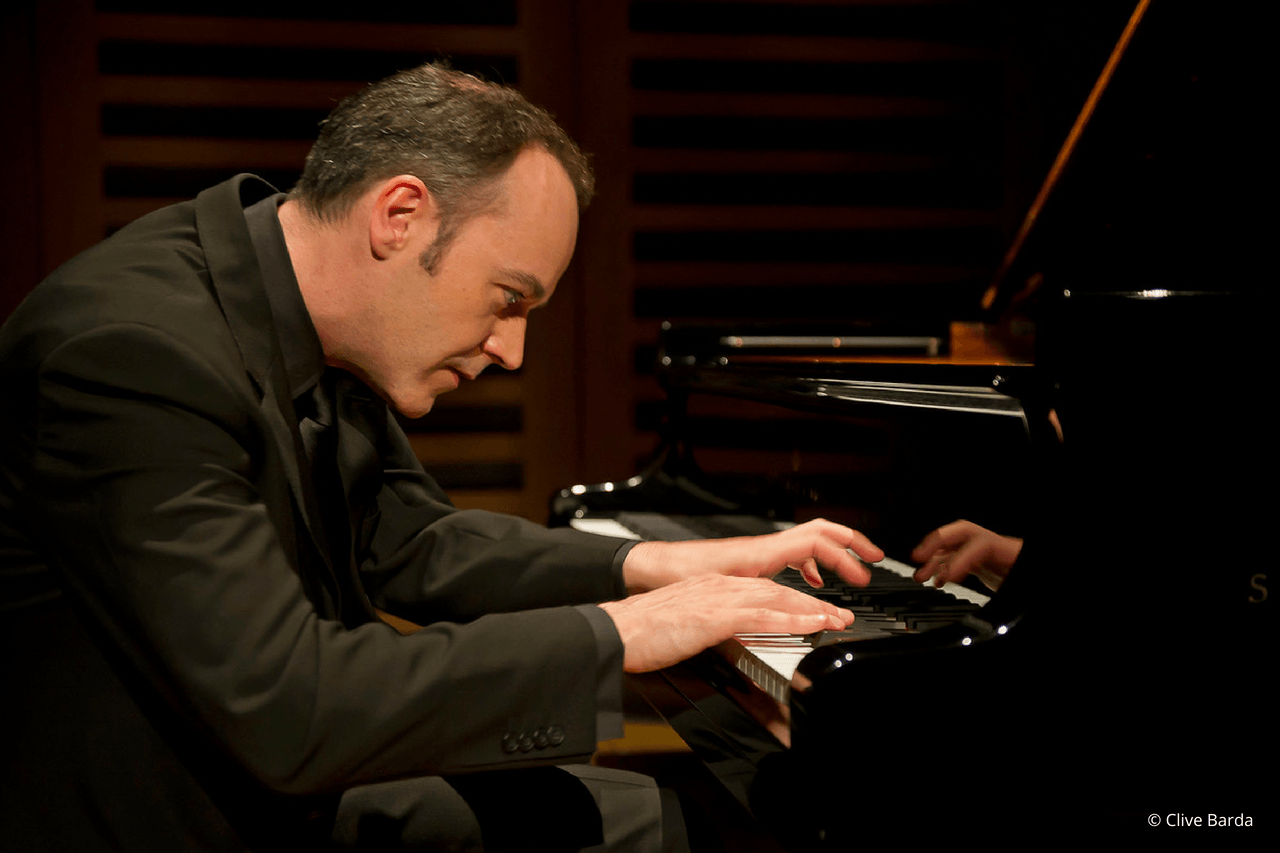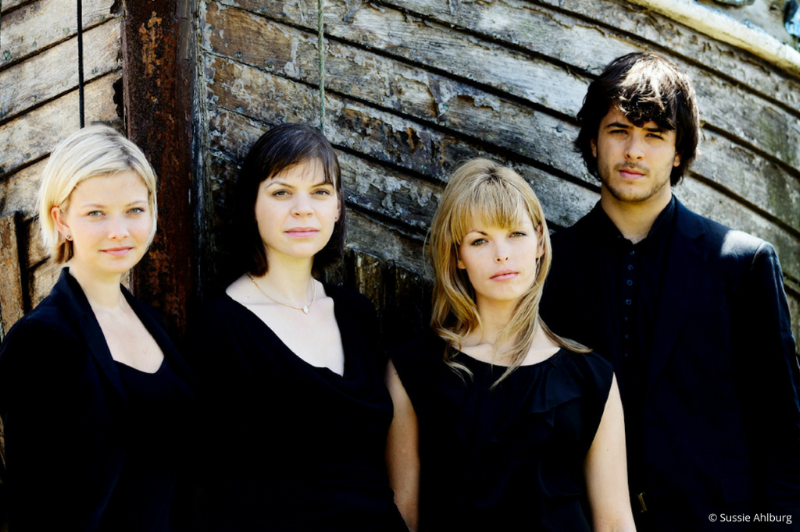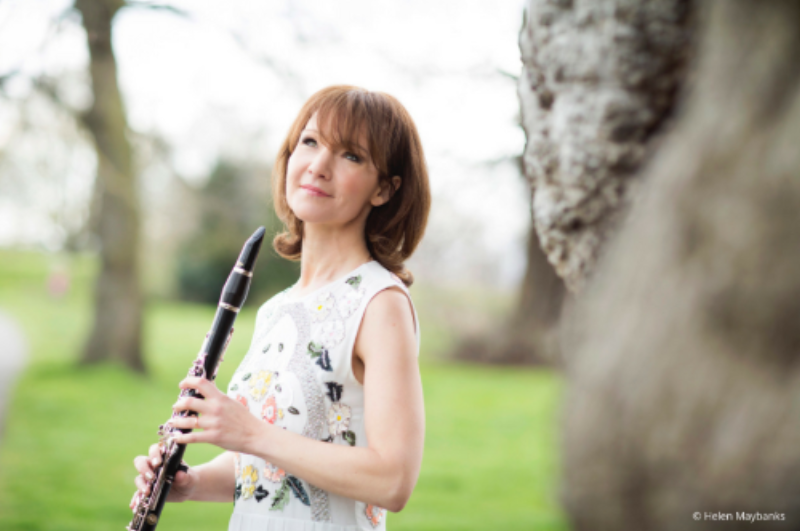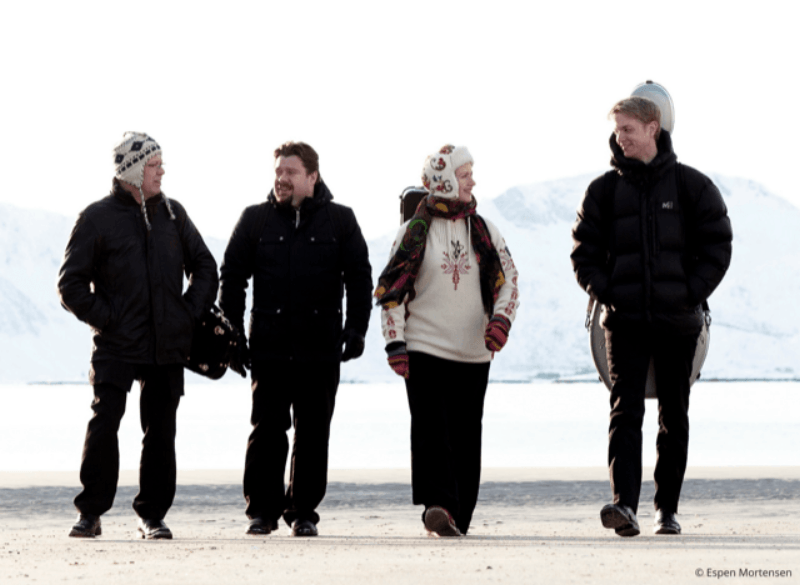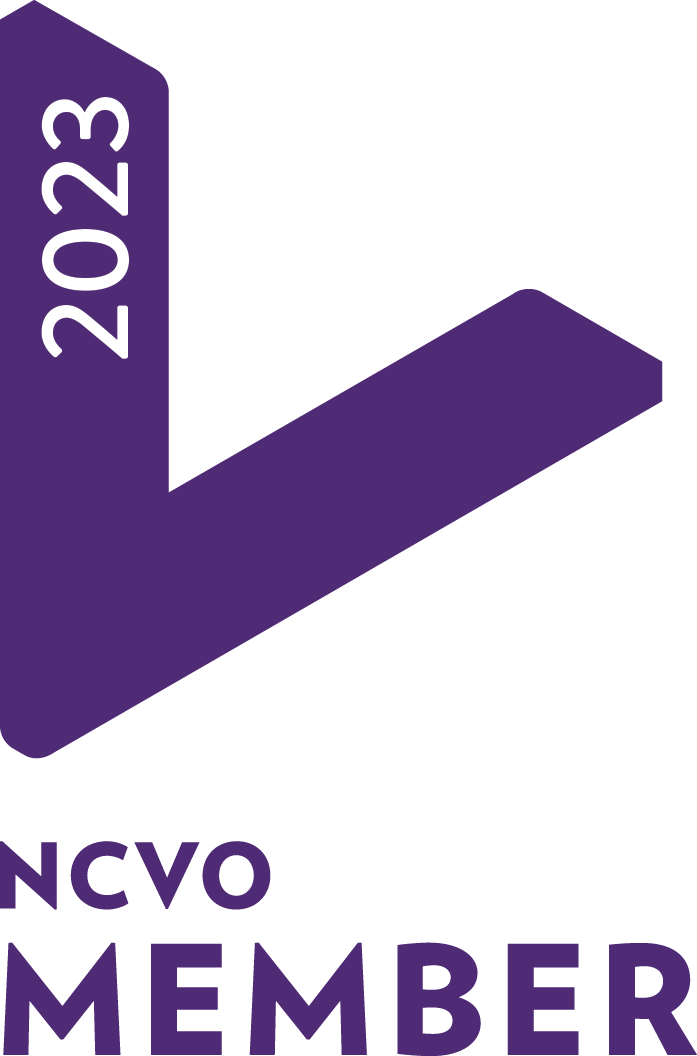An all Beethoven programme from Trio Shaham Erez Wallfisch on Thursday 19th March!
Thursday 19th March 2020 at 7.30pm
Trio Shaham Erez Wallfisch, founded in 2009, comprises three fine international instrumentalists. The trio is made up of Hagai Shaham on violin and Arnon Erez, one of Israel’s leading pianists, with cellist Raphael Wallfisch.
As a soloist, Shaham has performed with the world’s leading orchestras. In 1990, Shaham and Erez won the first prize at the International Music competition in Munich.
Raphael Wallfisch was born in London into a family of distinguished musicians. At the age of twenty-four he won the Gaspar Cassadó International Cello Competition in Florence. Since then he has enjoyed a worldwide career.
B ook your ticket here now!
'This fine trio plays with purpose and clarity...' BBC Music Magazine
Find out more about Trio Shaham Erez Wallfisch
and watch a video of their playing here.
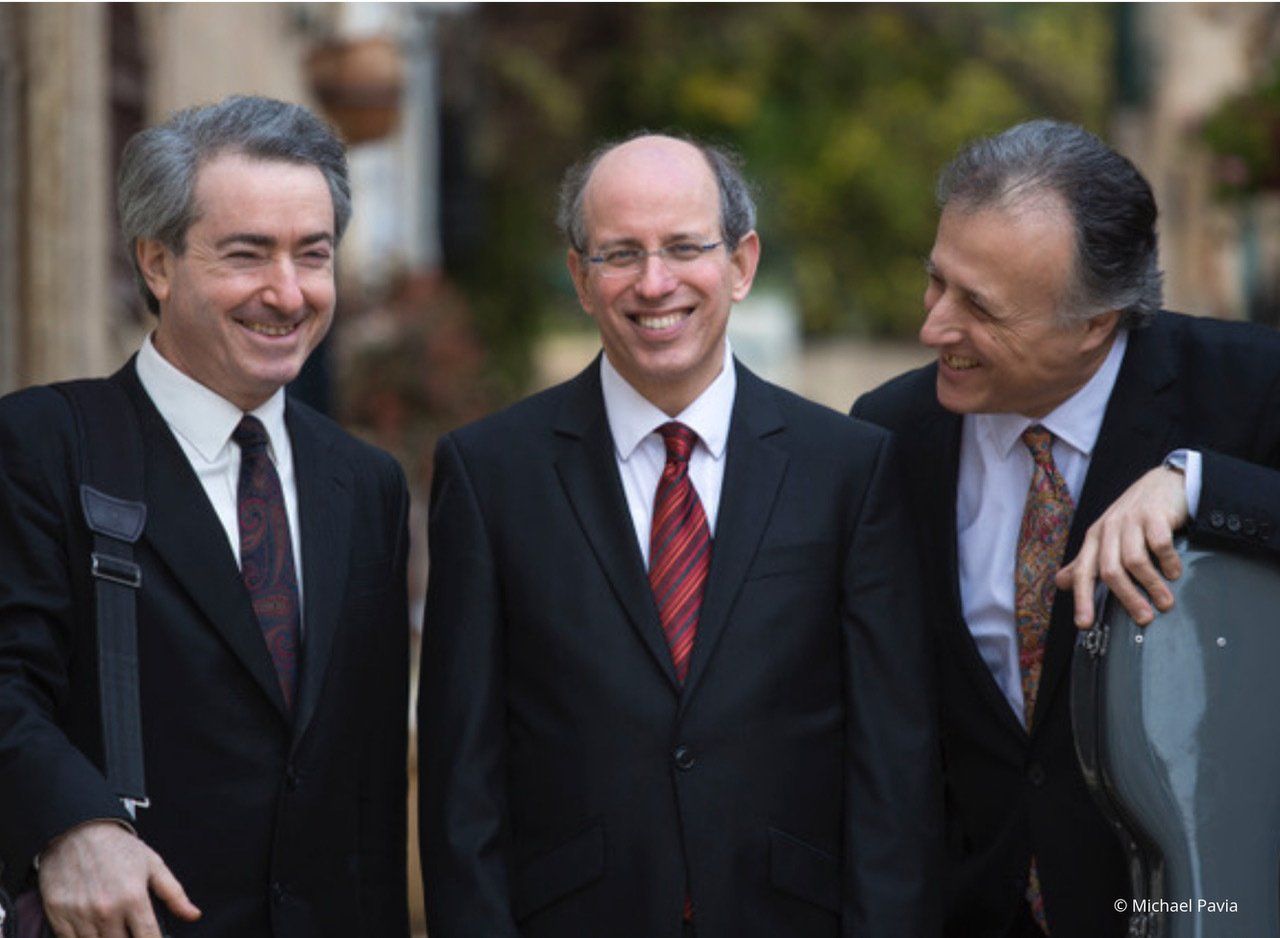
Find out more about the programme for our concert:
This year is the 250th anniversary of Beethoven’s birth. His music bridged the classical and romantic musical periods. He was a virtuoso pianist and one of the most influential of all composers. His best-known compositions include 9 symphonies, 5 piano concertos, 32 piano sonatas, and 16 string quartets.
His hearing began to fail but recent scholarship suggests that he was not totally deaf, except perhaps in his very last years. He never married but there were many women in his life to whom he became passionately attached. It was difficult for him that he was a ‘commoner’ but many of his loves, whom he had met through teaching or patronage, were ‘aristocrats’.
Born in Bonn, Beethoven lived there for 22 years. He then moved to Vienna where he studied with Haydn. Beethoven was unwell in his later years, possibly due to heavy metal poisoning from drugs used to treat him or from adulterated alcohol; the final cause of his death was liver failure.
In 1817, the English piano manufacturer John Broadwood built a grand piano, chosen to be the finest of the time, as a present for Beethoven. This instrument is known as the ‘Beethoven Broadwood’. The piano features the English grand action, and has a 6 octave keyboard. Broadwood pianos were much stronger than Viennese instruments and consequently allowed a much greater string tension. This gave them the distinct, more powerful sound demanded by pianists of the time. Beethoven wrote to thank Broadwood, ‘I have never felt a greater pleasure than your honour’s intimation of the arrival of this piano. I shall look upon it as an altar upon which I shall place the most beautiful offerings of my spirit to the divine Apollo.’
All works by Ludvig van Beethoven 1770-1827
Piano Trio in C minor, Op.1 No 3
i. Allegro con brio; ii. Andante cantabile, con variazioni; iii. Menuetto; iv. Prestissimo
published in 1795Beethoven's three Opus 1 trios are dedicated to Prince von Lichnowsky who had been generous to Beethoven after his arrival in Vienna. The Trios are rich in ideas and in Beethoven’s hands the trio form moves beyond the traditional three-movement design of Haydn and Mozart; he adds a movement, and gives the strings, in particular the cello, a more independent role.
The C minor trio is the most powerful of the three. A sinister mood is set at the start in the pause-filled first few bars, which then contrasts with a more hopeful staccato figure and with an optimistic second theme. After the turbulence of the first movement, the Andante cantabile variations are gentler. The Menuetto includes rapid rising arpeggios in the piano and the Trio has cascading piano scales. Then we are back to the stormy emotions of the first movement in the headlong Finale opening with more arpeggios but in a somewhat frantic mood. Relief comes with a sunny theme related to the opening two bars of the first movement; then the opening theme evaporates with ascending scales.
Kakadu Variations (Kakadu is German for cockatoo)
composed around 1803, but probably adjusted before publication twenty hears later
The work begins with a solemn adagio introduction in G minor that lasts for around a third of the work's total duration. The theme itself, when it finally appears, is almost comically anticlimactic—a simple, even trivial tune taken from Müller's opera Die Schwestern von Prag (The Sisters from Prague), popular during Beethoven's lifetime. This theme is followed by 10 variations, the first eight of which are conventional in style—a sequence of increasingly ornate decorations on Müller's theme as it passes back and forth between the instruments.
In the ninth variation, the music returns to the minor key and slow tempo of the introduction, while the final variation is a longer movement with several episodes of contrasting mood and tempo. Like the introduction, this final variation shows a chromatic and contrapuntal complexity that goes beyond what Beethoven achieved in his early works, and probably reflects revisions made during his period of greatest maturity.
Piano Trio in B flat major, Op.97 (The Archduke)
i. Allegro moderato; ii. Scherzo Allegro; iii. Andante cantabile ma però con moto. Poco piu adagio; iv. Allegro moderato – Presto
composed in 1811
This Trio was dedicated to Archduke Rudolph of Austria. He was an amateur pianist, and a patron, friend, and student of Beethoven. The first public performance, in a charity concert in a Viennese hotel, was the last time that Beethoven, who was by now severely deaf, played the piano in public. Spohr, a composer in the audience, wrote: ‘In forte passages the poor deaf man pounded on the keys until the strings jangled, and in piano he played so softly that whole groups of notes were omitted.’
The music in this Trio has a relaxed mood. It may feel like a free-flowing lyric invention, yet already in the second half of the first phrase Beethoven continues the line by varying figures already heard in the first two bars. As the lengthy movement unfolds, Beethoven creates rich textures and visits new keys in ways that always sound fresh and surprising. The second movement is a large-scale Scherzo alternating with a contrasting Trio. The Scherzo theme itself is simple - a major scale heard at first alone in the cello.
The dark minor Trio is a contrast, snaking its way chromatically up and down in a fugue-like manner, then exploding in a Viennese waltz figure that alternates through surprising key changes with the fugue. The slow movement is in a bright D major for a set of variations on a theme presented with a hymn like scoring in the piano. The statement is followed by four progressively elaborate variations. A transition leads directly from the slow movement to the finale. This recalls the opening of the first movement in the way both themes open with phrases that move from the home key (B-flat) to the subdominant chord (E-flat). There is a lively Presto conclusion, for a galloping close to Beethoven’s final contribution to the repertory of the piano trio.
Programme notes compiled from various sources.
